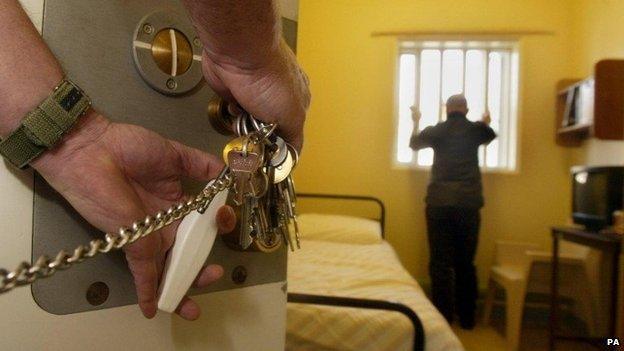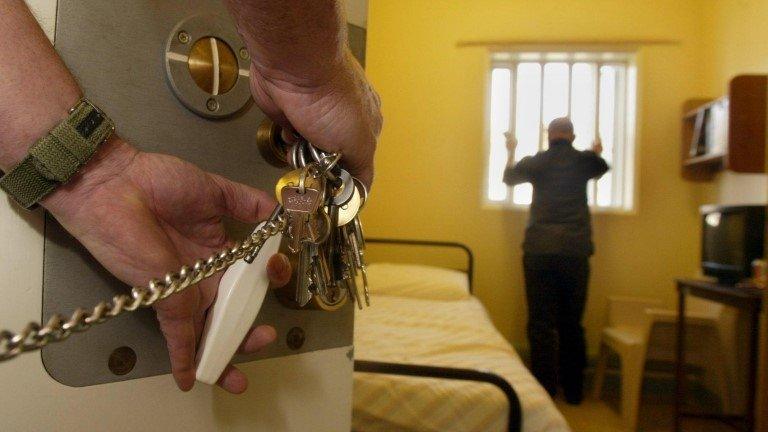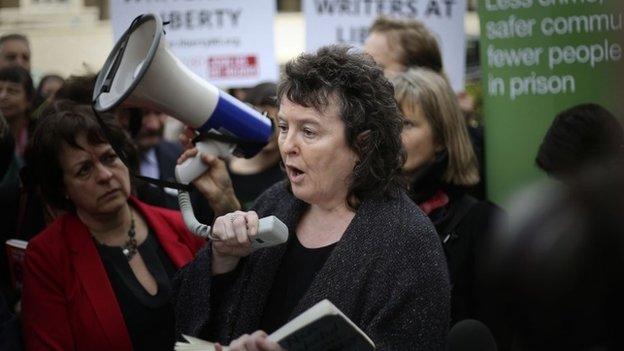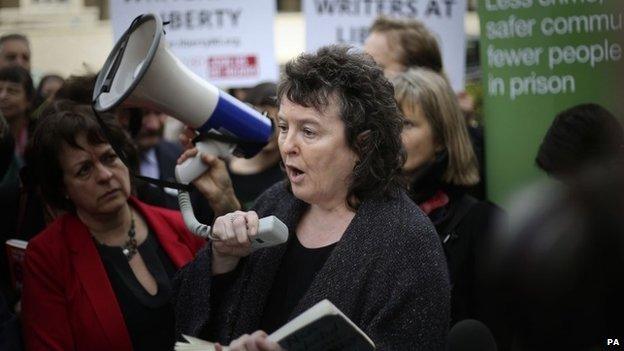Prison 'book ban' rule relaxed
- Published

A rule that effectively stopped prison inmates in England and Wales receiving books has been relaxed.
It follows a High Court ruling in December that restricting prisoners' access to books was unlawful.
The restriction was part of a scheme limiting what prisoners could receive in parcels, in an effort to stop drugs getting into prisons.
Books can now be sent to inmates via four retailers approved by the Prison Service.
The Incentives and Earned Privileges scheme was introduced in November 2013. Under the rules, prisoners are prevented from receiving parcels unless there are "exceptional circumstances", such as a medical condition.
Opponents of the restrictions on sending books argued that reading can be a key to the rehabilitation of offenders.
Although inmates were still allowed to use prison libraries, critics claimed that the libraries are often inadequately stocked, and can be hard to access because there is not always staff available to take prisoners to them.
Extremist material
Now the Prison Service has issued an amendment to the 2013 regulations, external, saying that books are to be excluded from the ban on sending items into jails.
A prisoner's friends or relatives can now order books from Blackwell's, Foyles, Waterstones or WH Smith, who will send the books directly to prisons.
These retailers had to meet "set criteria" to be approved, the National Offender Management Service said. Friends and relatives will only be allowed to send books or hand them in themselves in "exceptional circumstances".
There is no limit on the number of books a prisoner is allowed to receive, though they can keep no more than 12 in their cell.
'Gross misuse'
Frances Crook, chief executive of the Howard League for Penal Reform, said she was "pleased" prisoners could now be sent books.
But she said the fact it had taken more than a year of campaigning - and a High Court ruling - to get a rule change demonstrated a "gross misuse" of political power and public funds by the government.
Ms Crook said she was sure prison governors would be "humane" in interpreting the term "exceptional circumstances" - and would therefore allow books directly from family and friends if, for example, a prisoner needed them for an academic course and could not afford new copies.
A Prison Service spokesman said: "There never was a specific ban on books and we remain clear that we will not do anything that would create a new conduit for smuggling drugs and extremist materials into our prisons."
Responding to the change, Liberal Democrat justice spokesman Julian Huppert tweeted, external: "I'm very pleased that prisoners will now be able to get books. We should be encouraging prisoners to read and study."
- Published5 December 2014

- Published7 May 2014

- Published28 March 2014

- Published30 March 2014
